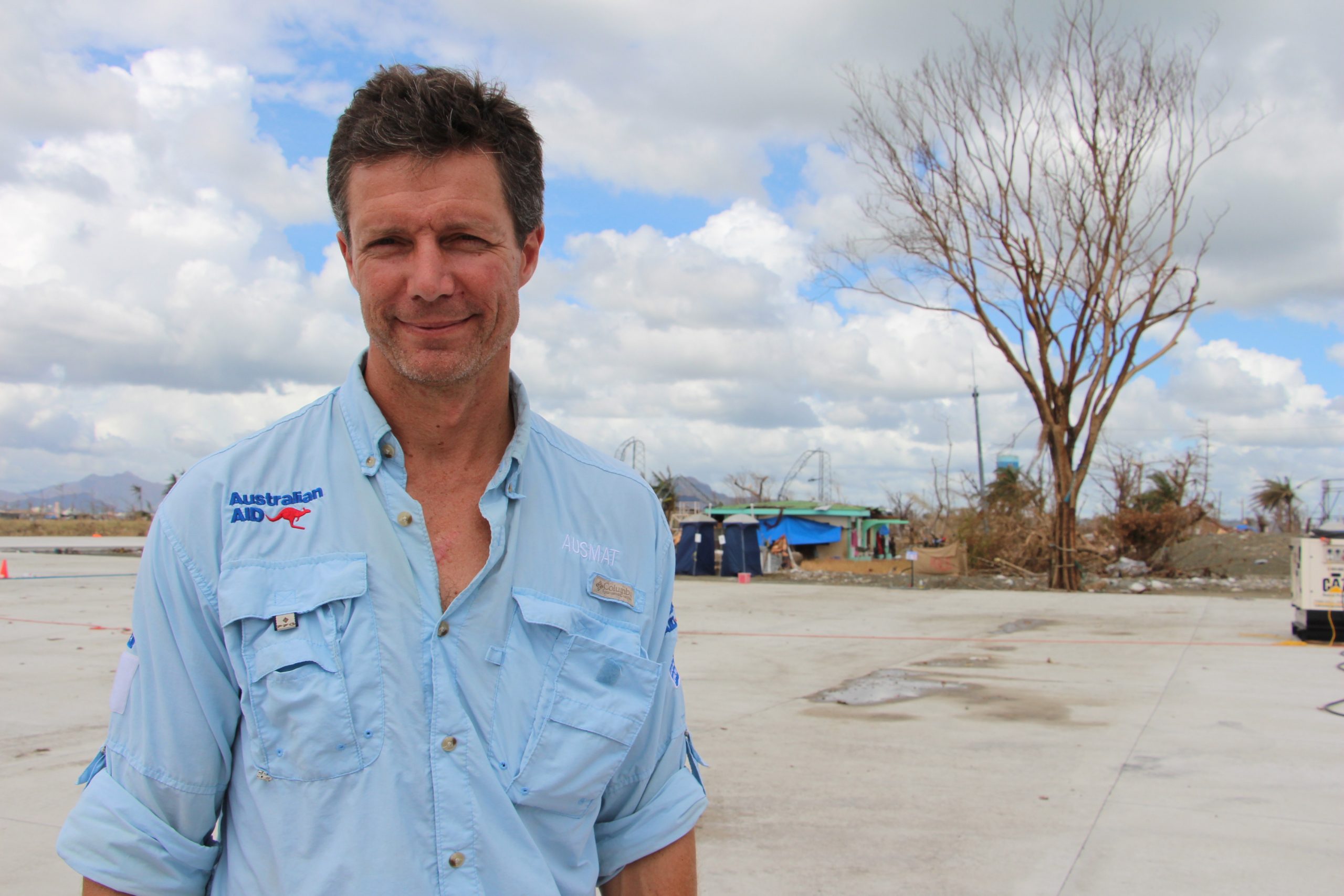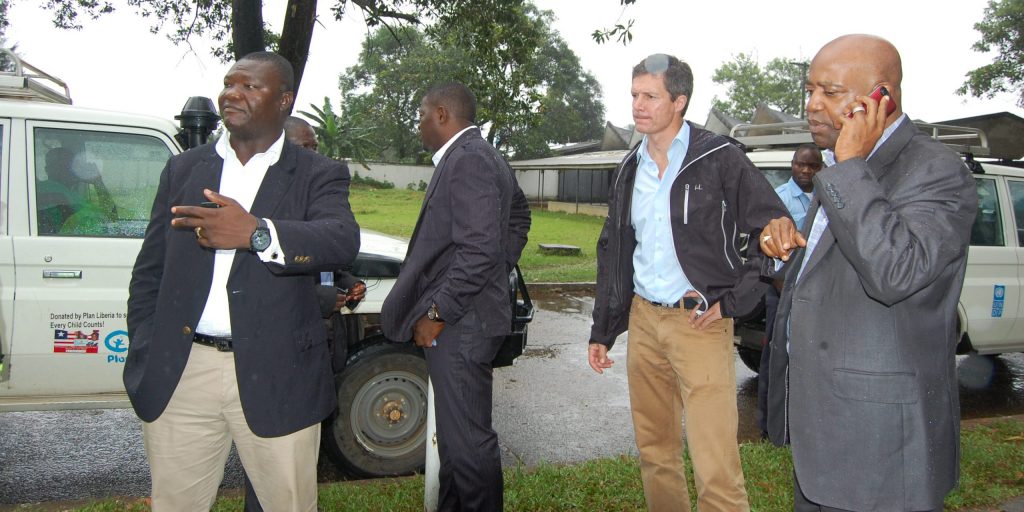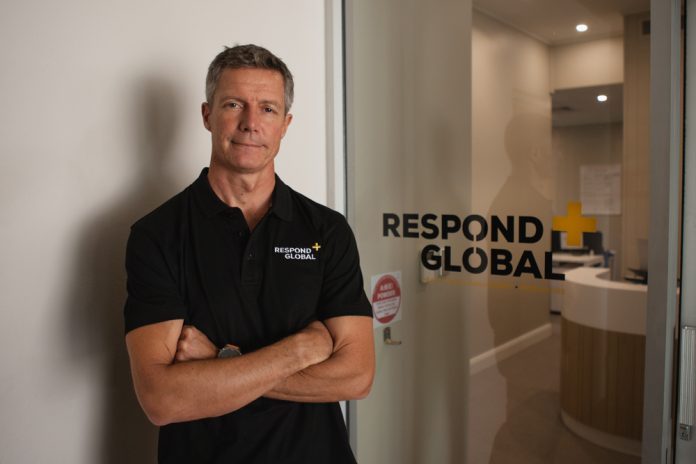A Noosa-based former WHO emergency coordinator, who manages disease outbreaks, says Queensland should take a “targeted” approach to lockdowns rather than order blanket shutdowns of regions that do not have the virus.
Dr Ian Norton, who has dealt with outbreaks like Ebola and is helping manage COVID, said keeping communities with no virus in extended lockdowns, and using fear as a tool to elicit compliance, would have the effect of “the boy who cried wolf” and reduce public buy-in.
The founder of Respond Global, an emergency response group based at Noosa, also warned that even with 80 per cent vaccination coverage, Australians should expect to live with outbreak flare-ups into the future.
Eleven local government areas in South-East Queensland, including the Sunshine Coast and Noosa, came out of an eight-day lockdown Sunday at 4pm after no cases were detected outside of Brisbane’s Indooroopilly cluster, despite record testing levels.
Businesses and workers were hit hard in all 11 LGAs and some were angry they were shut down even though no positive cases were present in their areas.
Visit Sunshine Coast estimated the impact on local tourism alone was a $45 million loss but there was a greater concern that many people would not be re-booking their visit in the immediate future because of ongoing uncertainty.
The latest lockdown forced many conferences and events to be postponed and the Sunshine Coast Marathon scheduled for August 14 has been bumped to October 10.
Dr Norton said he agreed that snap lockdowns were needed to contain a highly contagious — and more severe — variant like Delta.
However, he believed there should be compelling evidence to extend them beyond the initial lockdown period in unaffected regions.
Do you have an opinion to share? Submit a Letter to the Editor with your name and suburb at Sunshine Coast News via: news@sunshinecoastnews.com.au
“To take a complete blanket approach to lockdown for extended periods of time is in my mind — and it’s just my personal opinion — would not be justified.”

Dr Norton’s agency Respond Global is working with state and national governments and corporations to manage coronavirus spread in workplaces and aged care centres.
Respond Global was tasked with stopping Victoria’s outbreak in 165 aged care facilities during the state’s devastating second wave and is scaling up to a manage the outbreak in Sydney’s nursing homes.
The group supports major workplaces like factories, banks and suppliers of essential goods in implementing virus safety and infection screening in the workplace.
It will also be involved in the intense phase of the vaccine rollout in Queensland.
Dr Norton said the COVID vaccine was the key to ending the pandemic but even with 80 per cent coverage, Australia would still be vulnerable to flare-ups that required lockdowns because of new variants popping up in countries with lower vaccination rates.
“To think that the outbreaks will stop is not right, but what I hope they will become is sort of a flu season outbreak; not an outbreak that causes us to panic and shut borders and things.”
Local journalists supporting local people. Help keep independent and fair Sunshine Coast news coming by subscribing to our free daily news feed. All it requires is your name and email. See SUBSCRIBE at the top of this article
Prime Minister Scott Morrison has indicated Australia could open international borders and stop locking down when there was 80 per cent coverage, but Dr Norton said a return to some kind of normal life would require 90 per cent or higher herd immunity.
“When the new variants come you’ll have to see us ramp up our booster (vaccines) to cover those new variants as they arrive and it will limit our ability to widely travel unfortunately,” he said.
“If we manage to get to 90 per cent (vaccination coverage) we can tolerate those outbreaks because they don’t cause major serious illness and death; they are like a flu outbreak.”

Dr Norton said Australia had missed a golden opportunity to get more people vaccinated early with AstraZeneca and he expressed his disappointment at the way authorities had “miscommunicated” and created fear around the blood clots.
“I’ve been very disappointed, there’s been mixed messages about AstraZeneca. To me AstraZeneca is a safe vaccine that should have been rolled out to the whole population.
“There was a rare complication (but) there’s also rare complications with Pfizer, and other medical procedures have rare complications.
“It’s such a pity that we’ve jumped onto a very rare complication and talked about it in ways that we don’t talk about those kinds of complication for the contraceptive pill or aspirin or those other kinds of things.
“I think we missed an opportunity as a country to be in this privileged position. We had this amazing period where we had very little transmission and we had access to vaccine in the early part of this.
“We had a bit of a miscommunication about a vaccine we had chosen and we lost confidence in it and that’s devastating now.
“To put it into perspective, AstraZeneca has been given to a billion people around the world so far.
“It’s the reason why the UK is in such a great position with its rates of vaccine.
“I really hope the message changes in Queensland, to be positive. It’s inappropriate to be negative about a vaccine when you’re in a senior position.”





